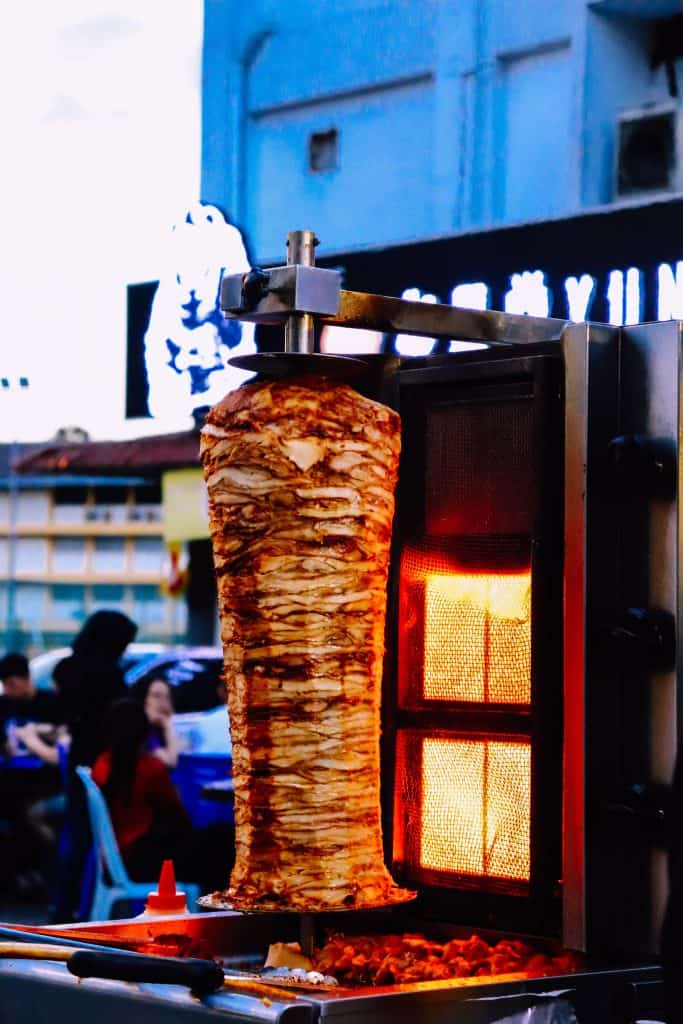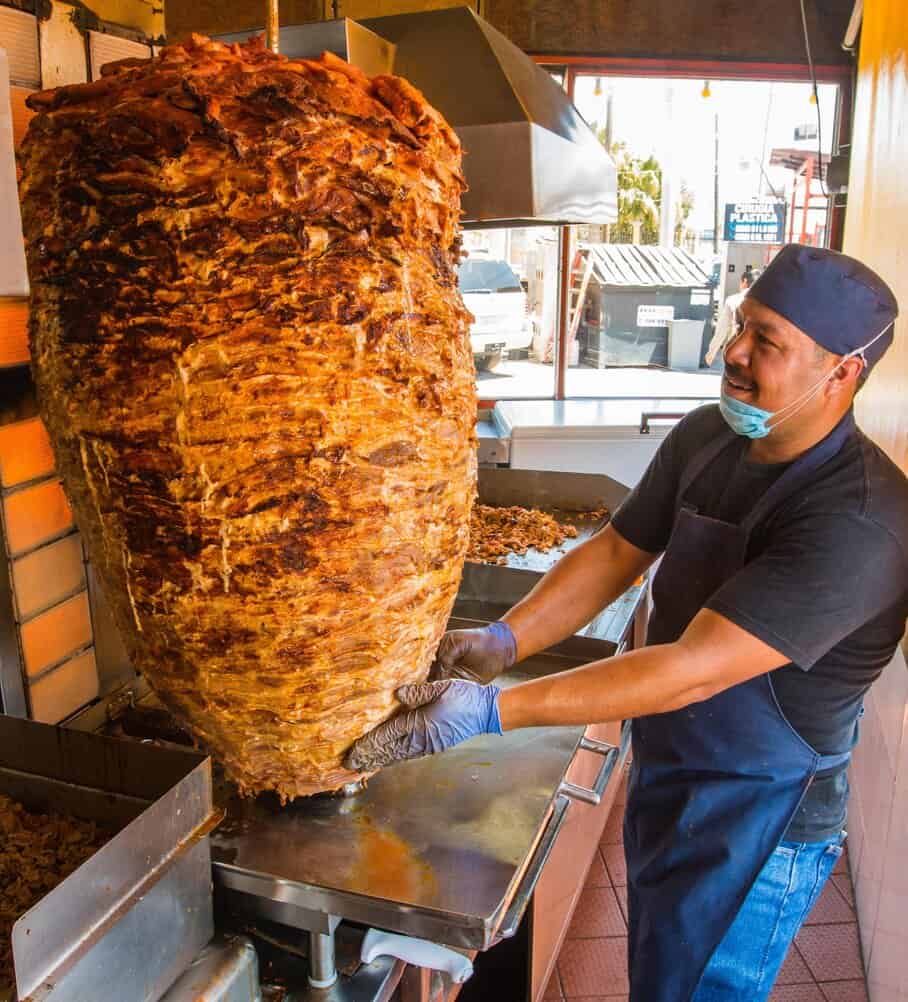Who doesn’t like a great kebab? Kebabs are delicious, relatively inexpensive compared to a sit-down restaurant meal, and for anyone who has a favorite kabab restaurant or corner store knows how on a rainy, cold, or long day sometimes a kebab just hits the spot. But if you’re like me and you’ve seen the big slab of kebab meat rotating and cooking to the perfect temperature for great doner kebab you’ve probably wondered like I have: how do they store all that meat overnight? How is kebab meat safely stored?
Because I don’t like the idea that it’s sitting there overnight before someone just fires up the warming heaters in the morning again…but the good news is that as with many situations where your mind races with a worst case scenario, that worst case scenario isn’t true. There are strict food safety guidelines in the United States, UK, Australia, EU, and other locations for how kebab meat is stored, and for how long it can be stored.
Kebabs are stored in a freezer right up until they are taken out to be grilled or put in the cooker, spending a minimum of two hours heating up before any of it is served. Kebab meat that isn’t used day one can be immediately stored in a fridge for one day before being warmed up for use on day two. Any kebab not used by the end of day two must be thrown away immediately.
Kebab shops understand the importance of proper storage, having good freezers and cold refrigerators, and the proper cooking set up to cook everything thoroughly whether day one or day two.
Read on for the in-depth details on this topic.

How Should Kebab Meat Be Stored Before Cooking?
Kebab meat should always be frozen. Obviously a big slab of kebab meat is going to have a lot of volume, and that means many places for bacteria to grow when it’ improperly stored. Because of this, a deep freeze is important to make sure that there are no issues prior to preparation. On the day that the kebab is going to be put into the grill and cooked, it’s actually recommended to take the kebab from the freezer and put it on the rotating grill.
If defrosting starts, it needs to be done in a refrigerator, not in a counter or out in the open. Even then, the time spent in the refrigerator should not exceed two hours, and it’s still best to have it frozen. As long as the grill is lit and heating properly, you should be able to slice and cook the meat without issue.
The moisture from the frozen inner layers keeps the meat from drying out and keeps it moist and delicious as the water soaks to the cooked outer layers. As more meat is sliced off the rotating spit of kebab meat to be grilled for the kebab, that heat gets further in, cooking further in, repeating the process until the until the entire large pole of kebab meat is cooked.
But what happens when there are leftovers?

How Do Kebab Shops Store Unused Kebab Meat?
Kebab meat that isn’t sold the day it’s brought out from the freezer and cooked will be either returned to the freezer before being brought out the next day, or it needs to be stored in a commercial refrigerator that is functioning on full.
Unused kebab meat should never be served two days after the initial cooking. Any leftover kebab meat needs to be taken off the grill and then cooled for two hours before being placed in a commercial strength refrigerator. The next day the kebab must be returned to the grill, and anything not fully cooked, used, and sold that day must be thrown away.
There’s actually a multi-step process to this at the end of the day, which is:
- Remove the kebab from the grill and allow time to cool (approximately 30 minutes)
- Trim off any cooked meat at the end of the session, making sure slicing is thin so every piece is thoroughly cooked
- Put the uncooked full kebab in the commercial refrigerator
- Keep the cooked and sliced kebab meat in a bain marie (a specialized pan for storing cooked food) and that bain marie with hot water must be at 63 degrees Celsius (146 degrees Fahrenheit)
- The cooked or heated kebab can be used by the store owner for food that night, any unused cooked kebab should be thrown away
- The next day bring the remaining kebab out and put in the grill. Anything not sold at the end of the day needs to be tossed out.
This is part of the reason why it’s so important for kebab shops to continuously sell enough kebabs to rotate through the supply because if they don’t sell enough to go through at least one every two days, then they need to throw away the rest of it, and that’s definitely cutting into the profits.
Kebabs are extremely popular and sell in large numbers, which makes storage less of an issue as long as the numbers stay high enough to push a full-sized kebab out. Ideally a whole number are done each day, though that might not always be possible, which is why proper storage is crucial for safety and health purposes.
Resources on Kebab Cooking Safety
In Conclusion
Proper storage of kebab meat is crucial to make sure not only is everything is up to code but that the meat is kept fresh and delicious, and kept healthy for the consumer. Proper storage techniques exist for a reason and if you were like me and always wondered how all that extra kebab meat was stored, now you have your answer.
Storage of kebab meat happens for one day or not at all, which is very reassuring to doner kebab lovers as this helps you know that the meal you receive should absolutely be fresh and ready to go.
Other Articles You May Enjoy
